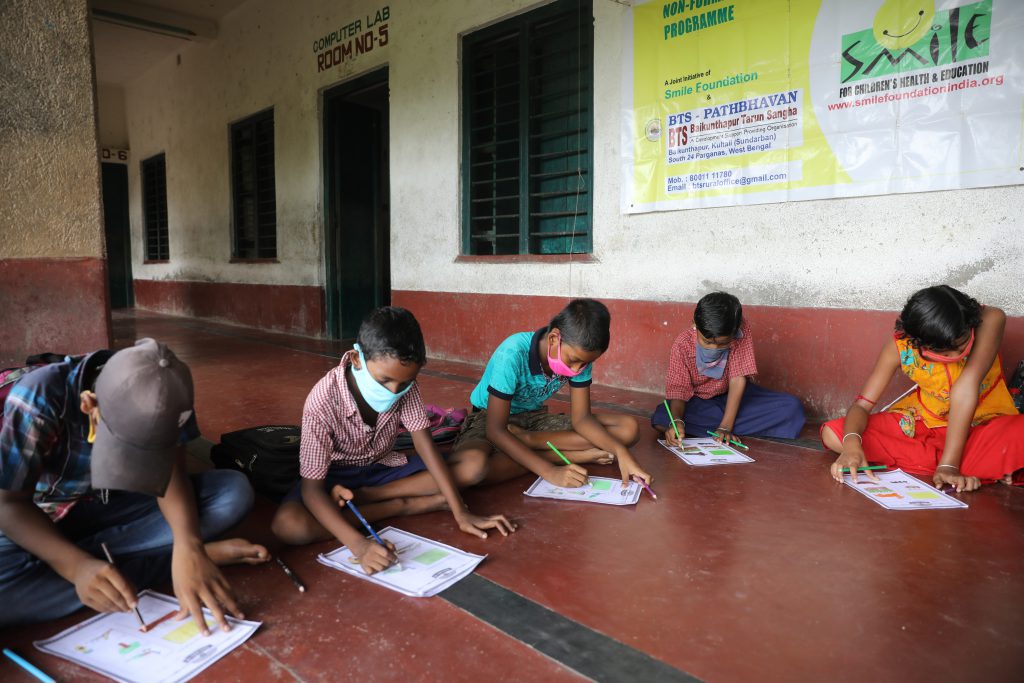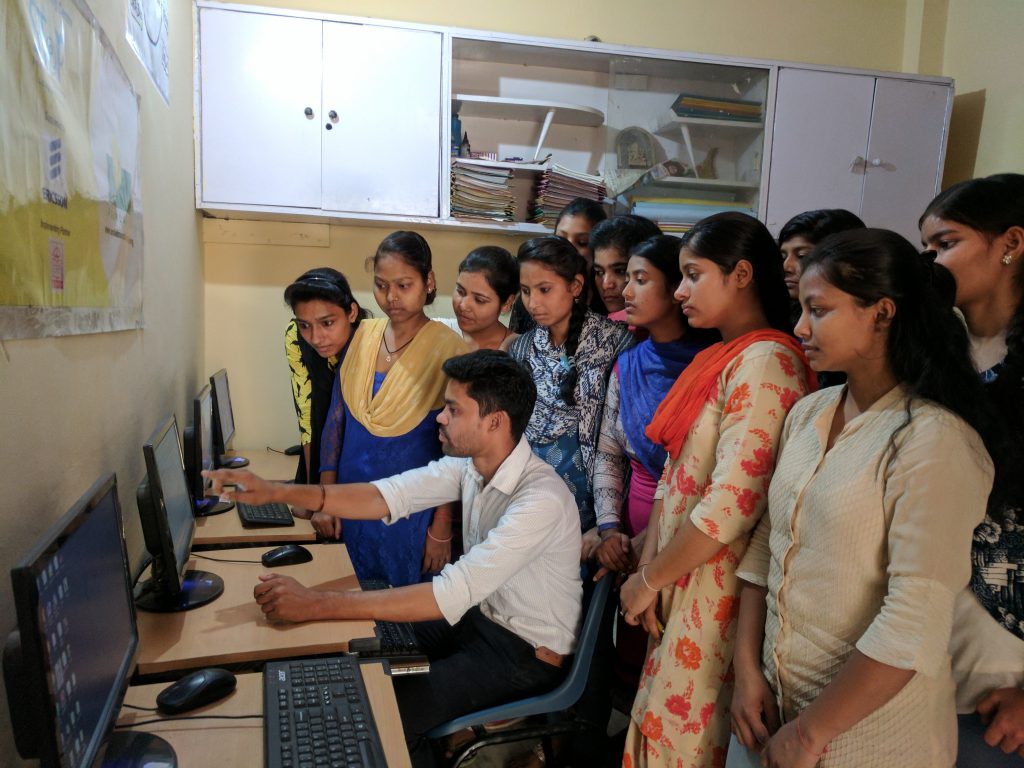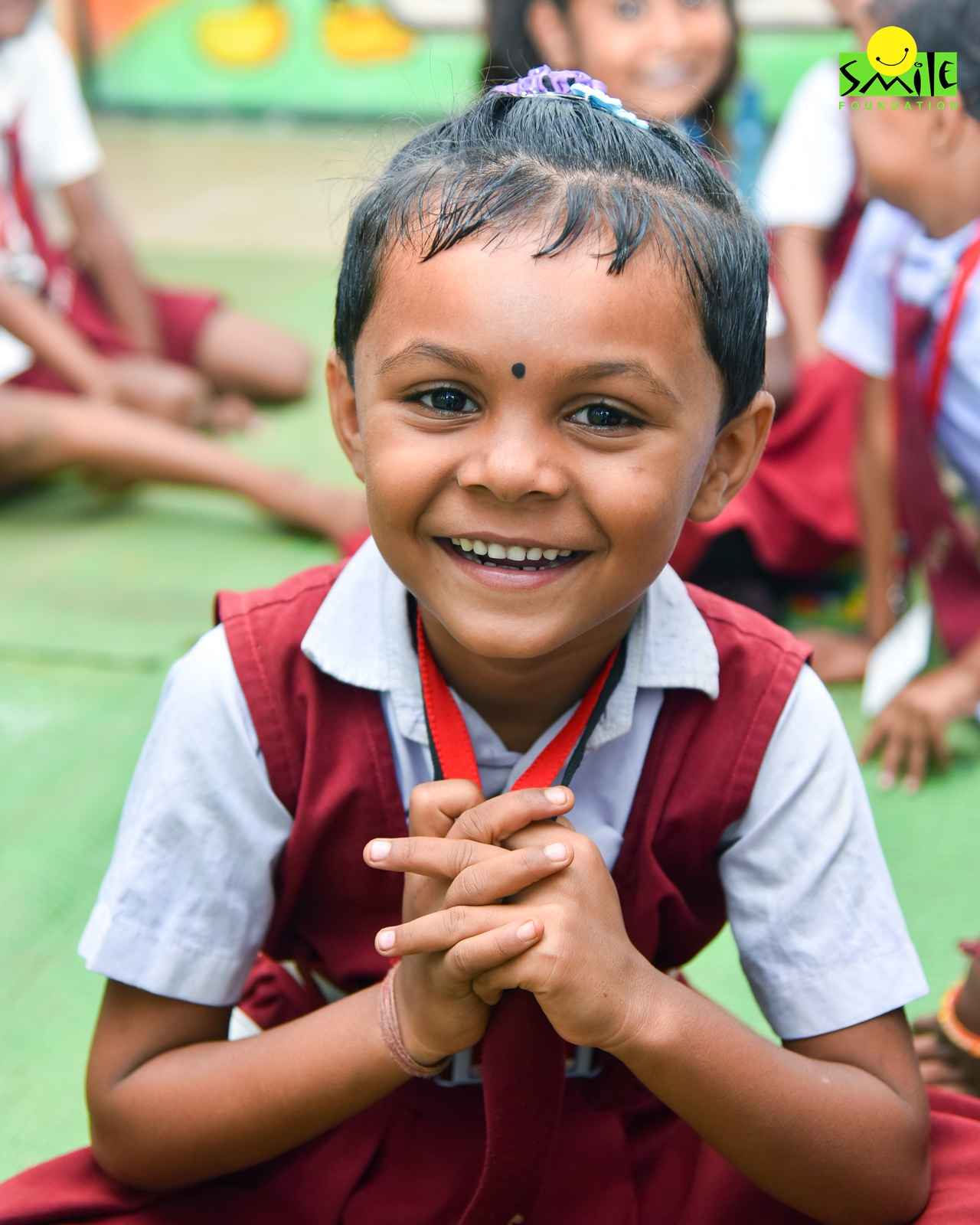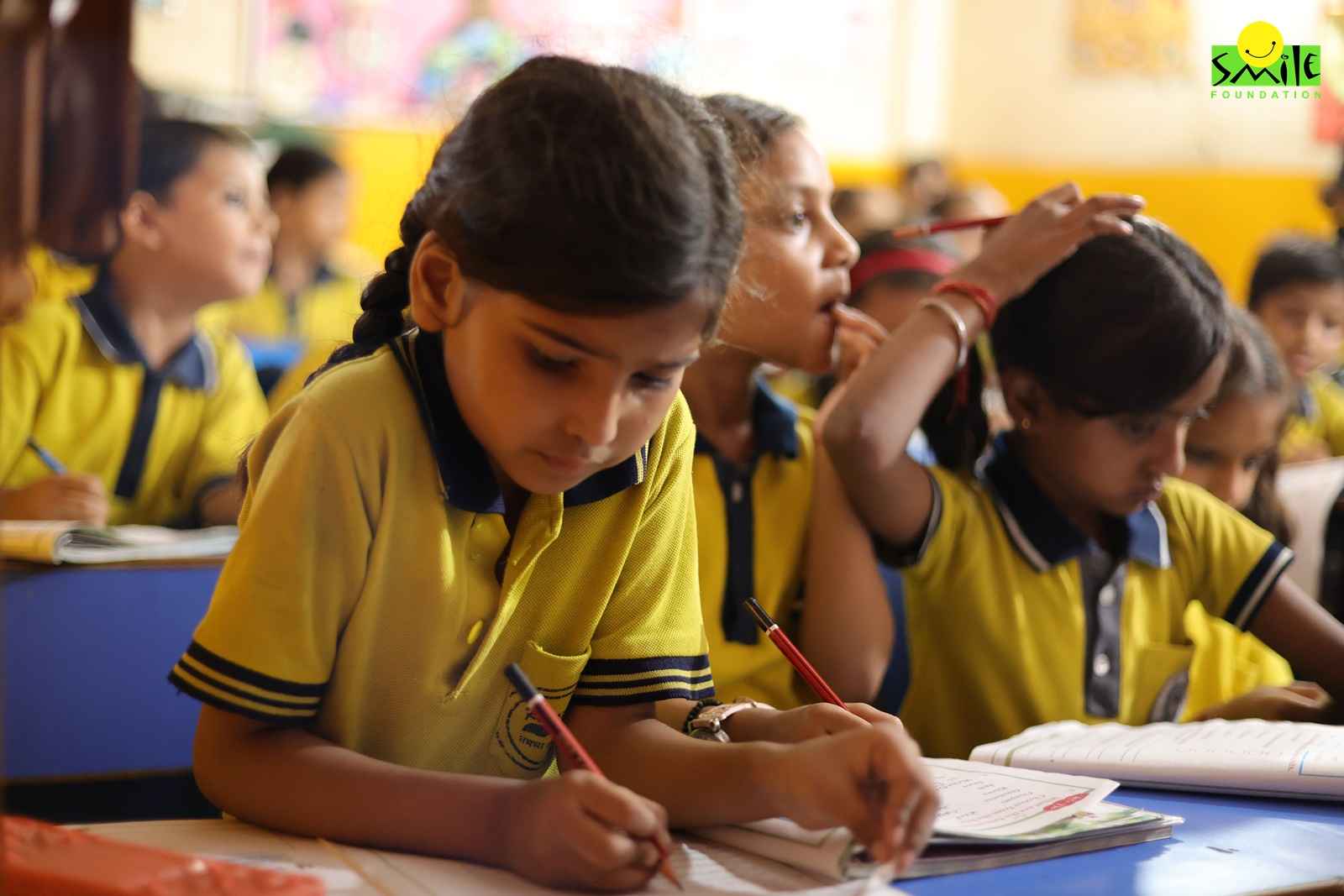Today, as the world is evolving to adapt and innovate to the new normal environment, children have been severely affected in terms of their education, schedules, practices, learning process and social interactions. New hygiene practices, daily schedules, restrictive movement and the general observations related to COVID-19 have more likely made the children experience various degrees of anxiety, worry and uncertainty. This in turn has also changed the dynamics at home with parents being at the forefront to support the children’s online education process. COVID induced lockdown and the times that followed have been very harsh especially on the vulnerable communities living on a minimum daily subsistence.
In order to understand the challenges and status of children and their families on ground in these pandemic times, a survey was conducted in July-August 20’ amongst the beneficiaries of Smile’s Mission Education programme to assess the needs and understand the challenges faced by children in terms of health, nutrition and education during Covid19 situation in operational locations of Smile Foundation (Pan India). Here are some key findings from the survey:
Health and hygiene awareness and practices
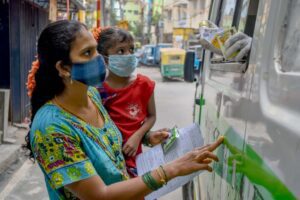
One of the most crucial measures to avoid infection of COVID-19 is to be aware and practice good hygiene at all times be it inside house or while going out for important work. However more than 60% in general, across all regions do not follow the new COVID induced social and health practices issued by government to curb the incidence of virus infections.
As per the data, 84% in South and West, 68% in East and 61% in North do not follow the necessary norms regularly. 85% of respondents in South do not follow the practice of regularly washing and cleaning hands along with 79% in West, 56% in East and 47% in North. With regards to use of masks, 76% of people in West don’t practice and think it necessary to wear masks while going out along with 72% in South, 55% in East and 48% in North. 91% in South do not think maintaining social distance is an important factor to avoid getting affected by the virus while 83% in West, 63% in East and 49% in North also feel the same.
Besides only very few people consider taking immunity boosting food can help them prevent or reduce the intensity of the virus attack with 99% not taking any kind.
Nutrition status and lifestyle
Nutrition is key component, especially in children in their growth years to develop and nurture a healthy body, mind and soul. It is vital in order to aid them in adapting to the neo normal life with its challenges in leading a healthy life, new learning processes and social norms with more vigour, alertness and focus.
The survey data reveals that more than 50% of households still do not have access to proper nutritious food. It is observed that more than 51% respondents acknowledged that children feel hunger pangs occasionally as well as quite often. Almost 20% of the households are not able to have 3 full meals a day owing to the current situation. Around 53% face difficulty in accessing homemade food with 21% finding it challenging to have access to nutritional products like full meals, pulses, etc.
Also, up to 77% of the respondents felt that their children’s lifestyle had changed either completely or partially, in terms of eating, sleeping and other regular routines. The reason could be that they are out of schools and not active enough during the day with less play, physical and mental activity, indicating the importance of schooling for every child.
General well-being of the children
It has been observed that 85% of the children felt bored, worried, angry or confused during the survey that calls for attention and action. This entails for scope for proper counselling, activity based learning and more engagement of children which is possible by supplementing with learning resources for children to use and work with. Of these 46% respondents accepted that they had insufficient teaching learning resource while 69% expressed that better guidance and support to access online classes and platforms would help ease the process. This would in turn aid them in guiding their children through online learning process.
The data shows that 14% of the respondents are trying to share news that induce positivity and imbibe with information on care, with the testimonials of people who have recovered from the virus attack while 30% try to filter the news and provide selective information with the children. But over 56% of respondents follow unofficial information from various sources and are on constant update with news feeds which could pose serious mental and anxiety issues for the individuals and in their behaviour towards others around them.
The need to disseminate proper information sources, counselling opportunities and more interactive sessions with parents and children seems to be inevitable to mitigate the fear, worry and concern brewing in the little minds and also in adults related to the effects of the prevalent situation.
Challenges in the neo normal learning process
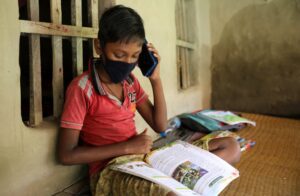
There have been tremendous efforts put in initiating online and other modes of classes for children to continue learning within the purview of existing limitations in different areas. Regardless, there are still gaps and needs felt by the beneficiaries in effectively accessing online learning. This section was aimed at understanding the gaps in the ongoing alternate learning process and ideating on probable interventions to address them adequately.
With only 51% of the respondents satisfied with the current learning methods, 80% are waiting for schools to reopen after the lockdown is lifted, as they are inclined to send their children to school. Almost 68% feel that the online/tele-calling classes are very rarely (sometime/never) scheduled as per parents availability since most of the parents having started going out for work or they have one mobile for both their work and their child’s study. Moreover 95% of the respondents have two or more children at home which could also pose challenge in providing mobile phones to each one of them, with almost classes scheduled at the same time for all children. Regarding accessibility to mobile phone with ease, 68% of respondents expressed that they need guidance or they are not able to access properly while 74% are not able to guide their children regularly. Furthermore, 44% mentioned that they do not have adequate availability of educational resources to facilitate home-based learning for their children.
Interestingly, 52% of respondents were ready to learn to support their children to adapt to the new learning process while 48% felt that they are not prepared or equipped to help the children. This manifests the glaring need for more orientation and support in terms of digital literacy for the parents and guardians to support their children academically. For 48%, online learning is considered as the most effective learning method with the help of tools like Zoom, Google Team, WhatsApp, etc. where the children are connected to their school, teachers and learning content through live as well as recorded classes.
The other most effective methods according to the respondents are sharing worksheets (44%) over WhatsApp or handing over to parents at the centre/home besides tele-calling parents and teachers visiting homes to meet beneficiaries. A very small population of around 8% even explore other education based apps and this is probably because majority of the parents are not aware about how to use applications appropriately or it could be also due to lack of space on phones and limited data pack. However, the primary support indicated by 53% of surveyed respondents is the need for adequate educational resources inclusive of books and other teaching learning materials with 53% while other kinds of support mentioned include mobile phone, internet support and related accessories to continue the learning process with the desired results.
The survey indicates that Covid has intensified the vulnerability of the less privileged communities with lack of regular income and employment opportunities affecting the people’s mental, emotional and physical well-being. It is crucial to address these gaps, advocate for support services and bridge the development gaps to bring every child closer to a healthier learning and growing environment.
To know more https://www.smilefoundationindia.org/education.html



